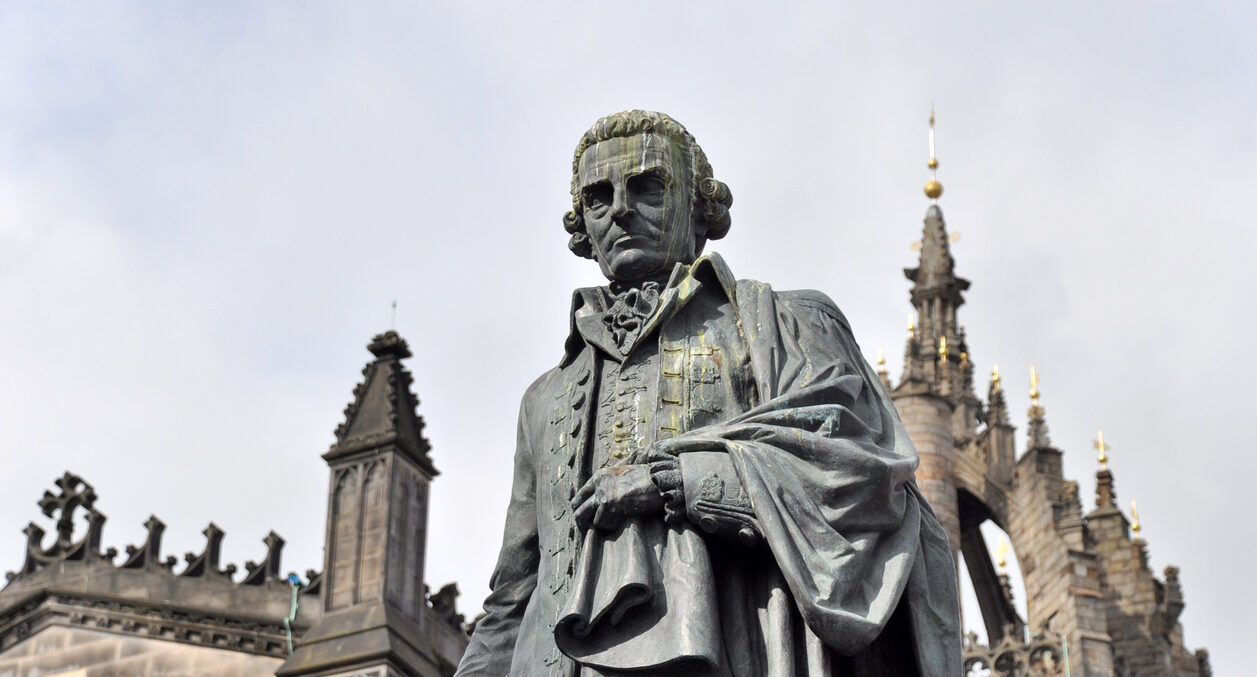
The interplay among political philosophy, competition, and competition law remains, with some notable exceptions, understudied in the literature. Indeed, while examinations of the intersection between economics and competition law have taught us much, relatively little has been said about the value frameworks within which different visions of competition and competition law operate.
As Ronald Coase reminds us, questions of economics and political philosophy are interrelated, so that “problems of welfare economics must ultimately dissolve into a study of aesthetics and morals.” When we talk about economics, we talk about political philosophy, and vice versa. Every political philosophy reproduces economic prescriptions that reflect its core tenets. And every economic arrangement, in turn, evokes the normative values that undergird it. This is as true for socialism and fascism as it is for liberalism and neoliberalism.
Many economists have understood this. Milton Friedman, for instance, who spent most of his career studying social welfare, not ethics, admitted in Free to Choose that he was ultimately concerned with the preservation of a value: the liberty of the individual. Similarly, the avowed purpose of Friedrich Hayek’s The Constitution of Liberty was to maximize the state of human freedom, with coercion—i.e., the opposite of freedom—described as evil. James Buchanan fought to preserve political philosophy within the economic discipline, particularly worrying that:
Political economy was becoming unmoored from the types of philosophic and institutional analysis which were previously central to the field. In its flight from reality, Buchanan feared economics was in danger of abandoning social-philosophic issues for exclusively technical questions.
— John Kroencke, “Three Essays in the History of Economics”
Against this background, I propose to look at competition and competition law from a perspective that explicitly recognizes this connection. The goal is not to substitute, but rather to complement, our comparatively broad understanding of competition economics with a better grasp of the deeper normative implications of regulating competition in a certain way. If we agree with Robert Bork that antitrust is a subcategory of ideology that reflects and reacts upon deeper tensions in our society, the exercise might also be relevant beyond the relatively narrow confines of antitrust scholarship (which, on the other hand, seem to be getting wider and wider).
The Classical Liberal Revolution and the Unshackling of Competition
Mercantilism
When Adam Smith’s The Wealth of Nations was published in 1776, heavy economic regulation of the market through laws, by-laws, tariffs, and special privileges was the norm. Restrictions on imports were seen as protecting national wealth by preventing money from flowing out of the country—a policy premised on the conflation of money with wealth. A morass of legally backed and enforceable monopoly rights, granted either by royal decree or government-sanctioned by-laws, marred competition. Guilds reigned over tradesmen by restricting entry into the professions and segregating markets along narrow geographic lines. At every turn, economic activity was shot through with rules, restrictions, and regulations.
The Revolution in Political Economy
Classical liberals like Smith departed from the then-dominant mercantilist paradigm by arguing that nations prospered through trade and competition, and not protectionism and monopoly privileges. He demonstrated that both the seller and the buyer benefited from trade; and theorized the market as an automatic mechanism that allocated resources efficiently through the spontaneous, self-interested interaction of individuals.
Undergirding this position was the notion of the natural order, which Smith carried over from his own Theory of Moral Sentiments and which elaborated on arguments previously espoused by the French physiocrats (a neologism meaning “the rule of nature”), such as Anne Robert Jacques Turgot, François Quesnay, and Jacques Claude Marie Vincent de Gournay. The basic premise was that there existed a harmonious order of things established and maintained by means of subconscious balancing of the egoism of the individual and the greatest welfare for all.
The implications of this modest insight, which clashed directly with established mercantilist orthodoxy, were tremendous. If human freedom maximized social welfare, the justification for detailed government intervention in the economy was untenable. The principles of laissez-faire (a term probably coined by Gournay, who had been Turgot’s mentor) instead prescribed that the government should adopt a “night watchman” role, tending to modest tasks such as internal and external defense, the mediation of disputes, and certain public works that were not deemed profitable for the individual.
Freeing Competition from the Mercantilist Yoke
Smith’s general attitude also carried over to competition. Following the principles described above, classical liberals believed that price and product adjustments following market interactions among tradesmen (i.e., competition) would automatically maximize social utility. As Smith argued:
In general, if any branch of trade, or any division of labor, be advantageous to the public, the freer and more general the competition, it will always be the more so.
This did not mean that competition occurred in a legal void. Rather, Smith’s point was that there was no need to construct a comprehensive system of competition regulation, as markets would oversee themselves so long as a basic legal and institutional framework was in place and government refrained from actively abetting monopolies. Under this view, the only necessary “competition law” would be those individual laws that made competition possible, such as private property rights, contracts, unfair competition laws, and the laws against government and guild restrictions.
Liberal Political Philosophy: Utilitarian and Deontological Perspectives on Liberty and Individuality
Of course, this sort of volte face in political economy needed to be buttressed by a robust philosophical conception of the individual and the social order. Such ontological and moral theories were articulated in, among others, the Theory of Moral Sentiments and John Stuart Mill’s On Liberty. At the heart of the liberal position was the idea that undue restrictions on human freedom and individuality were not only intrinsically despotic, but also socially wasteful, as they precluded men from enjoying the fruits of the exercise of such freedoms. For instance, infringing the freedom to trade and to compete would rob the public of cheaper goods, while restrictions on freedom of expression would arrest the development of thoughts and ideas through open debate.
It is not clear whether the material or the ethical argument for freedom came first. In other words, whether classical liberalism constituted an ex-post rationalization of a moral preference for individual liberty, or precisely the reverse. The question may be immaterial, as classical liberals generally believed that the deontological and the consequentialist cases for liberty—save in the most peripheral of cases (e.g., violence against others)—largely overlapped.
Conclusion
In sum, classical liberalism offered a holistic, integrated view of societies, markets, morals, and individuals that was revolutionary for the time. The notion of competition as a force to be unshackled—rather than actively constructed and chaperoned—flowed organically from that account and its underlying values and assumptions. These included such values as personal freedom and individualism, along with foundational metaphysical presuppositions, such as the existence of a harmonious natural order that seamlessly guided individual actions for the benefit of the whole.
Where such base values and presumptions are eroded, however, the notion of a largely spontaneous, self-sustaining competitive process loses much of its rational, ethical, and moral legitimacy. Competition thus ceases to be tenable on its “own two feet” and must either be actively engineered and protected, or abandoned altogether as a viable organizing principle. In this sense, the crisis of liberalism the West experienced in the late 19th and early 20th centuries—which attacked the very foundations of classical liberal doctrine—can also be read as a crisis of competition.
In my next post, I’ll discuss the collectivist backlash against liberalism.




